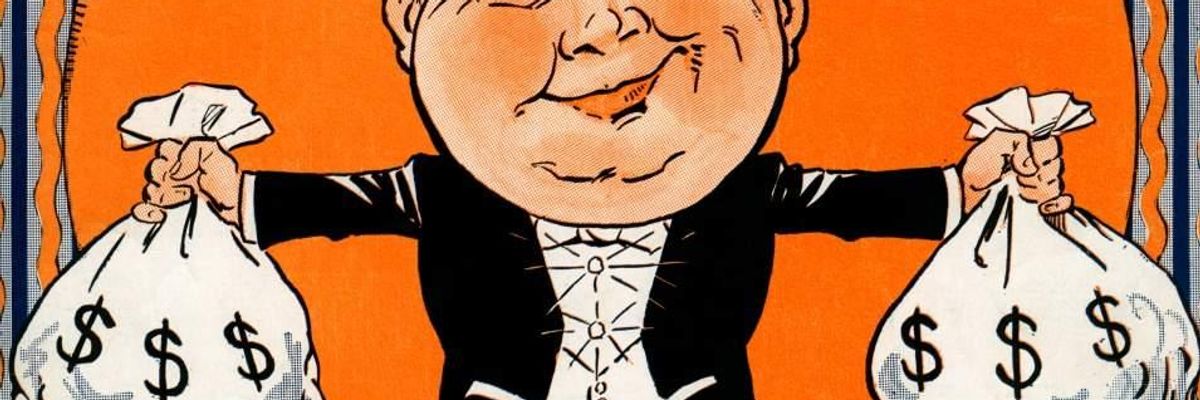"Oligarchy" means government of and by a few at the top, who exercise power for their own benefit. It comes from the Greek word oligarkhes, meaning "few to rule or command."
Even a system that calls itself a democracy can become an oligarchy if power becomes concentrated in the hands of a few very wealthy people - a corporate and financial elite.
Their power and wealth increase over time as they make laws that favor themselves, manipulate financial markets to their advantage, and create or exploit economic monopolies that put even more wealth into their pockets.
Modern-day Russia is an oligarchy, where a handful of billionaires who control most major industries dominate politics and the economy.
What about the United States?
According to a study published in 2014 by Princeton Professor Martin Gilens and Northwestern Professor Benjamin Page, although Americans enjoy many features of democratic governance, such as regular elections, and freedom of speech and association, American policy making has become dominated by powerful business organizations and a small number of affluent Americans.
The typical American has no influence at all.
This is largely due to the increasing concentration of wealth. In a 2019 research paper, Berkeley economics professor Gabriel Zucman determined that the richest 1 percent of Americans now own 40 percent of the nation's wealth. That's up from 25 to 30 percent of the nation's wealth in the 1980s.
The only country Zucman found with similarly high levels of wealth concentration is ... Russia.
America has had an oligarchy before - in the first Gilded Age, which ran from the 1880s until the early 20th century.
Teddy Roosevelt called that oligarchy the "malefactors of great wealth," and fought them by breaking up large concentrations of economic power-the trusts-and instituting a progressive federal income tax.
His fifth cousin, Franklin D. Roosevelt, further reduced their power by strictly regulating Wall Street, and encouraging the growth of labor unions. The oligarchy fought back but Roosevelt wouldn't yield.
"Government by organized money is just as dangerous as Government by organized mob," he thundered in 1936. "Never before in all our history have these forces been so united against one candidate as they stand today. They are unanimous in their hate for me--and I welcome their hatred."
But the American oligarchy has returned. We are now in a second Gilded Age. As the great jurist Louis Brandeis once said, "We can have democracy in this country or we can have wealth concentrated in the hands of a few, but we cannot have both."
We must, once again, make the correct choice and reduce the economic and political power of the American oligarchy.

